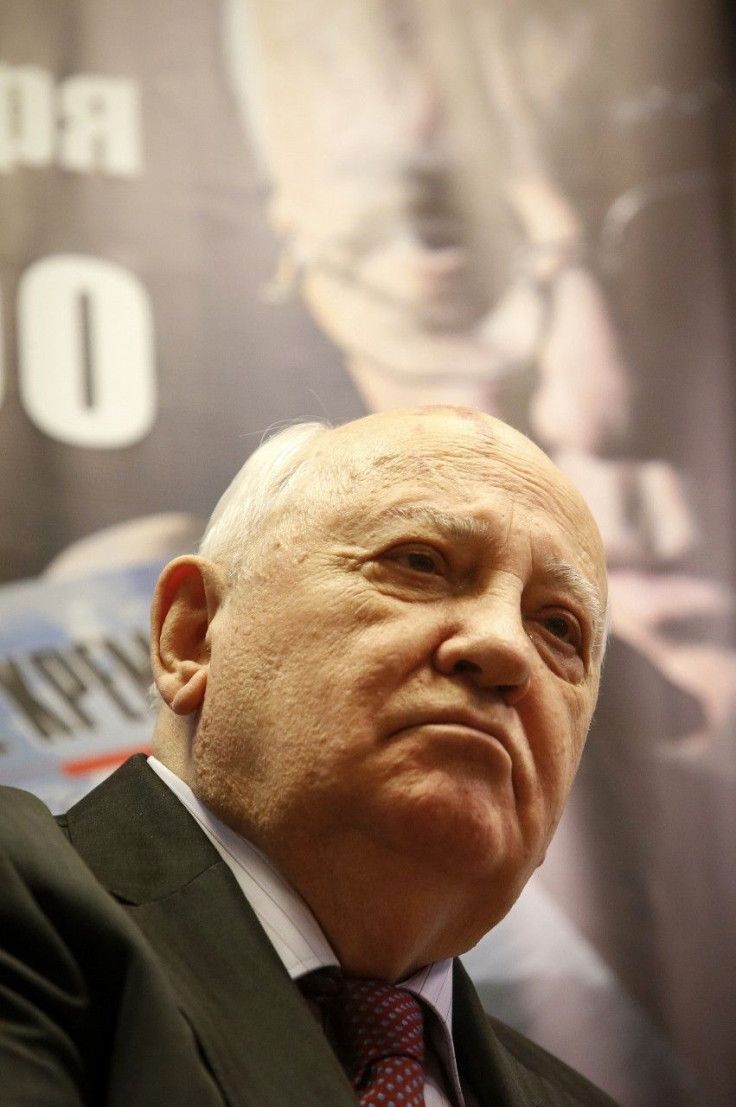NATO Expansion Into Ukraine Could Ignite Nuclear War, Gorbachev Says; World ‘Will Not Survive The Next Few Years’

Former Soviet leader Mikhail Gorbachev, without necessarily taking sides with Russian President Vladimir Putin, told a German news magazine that NATO instigated the current Ukraine crisis because it had chosen to not adhere to the provisions of the Paris Charter of 1990, thus saying the dangling nuclear between the bloc and Russia is just a matter of time.
With both sides flaunting their respective nuclear arsenal, Gorbachev told German magazine Der Spiegel the world "will not survive the next few years" if either side lost its nerve in the current stand-off. "Moscow does not believe the West, and the West does not believe Moscow. The loss of confidence is catastrophic."
Although critical of his successor, the 1990 Nobel Peace Prize winner nonetheless believed Mr Putin was just reacting based on NATO's flamboyant aspirations to expand, fuelled by the United States' "dangerous winning mentality." He said US-led NATO's eastward expansion has destroyed the very essence of the European security order which was written in the Helsinki Final Act of 1975. The bloc's expansion, he claimed, was a 180-degree turn away from the Paris Charter of 1990. He said the latter was made together with all European states to finally leave the Cold War in the past.
"We won't survive the coming years if someone loses their nerve in this overheated situation," Gorbachev said. "This is not something I'm saying thoughtlessly. I am extremely concerned."
He also sanctions against Russia lead to nowhere because it harms both Moscow and those who imposed them. "It reminds me of blood revenge. Sanctions are not the suitable instrument in case we want to save our model relations," he said, referring to the level of cooperation Moscow and Berlin showed in the 1990s and 2000s.
Tensions between Western powers and Russia escalated after pro-Russian separatists overtook large parts of eastern Ukraine. Afterwards, Russia annexed Crimea in early 2014. NATO has been escalating its forces in Eastern Europe while accusing Russia of sending troops to Ukraine. The latter had repeatedly denied the allegations.
To report problems or to leave feedback about this article, e-mail: e.misa@ibtimes.com.au





















